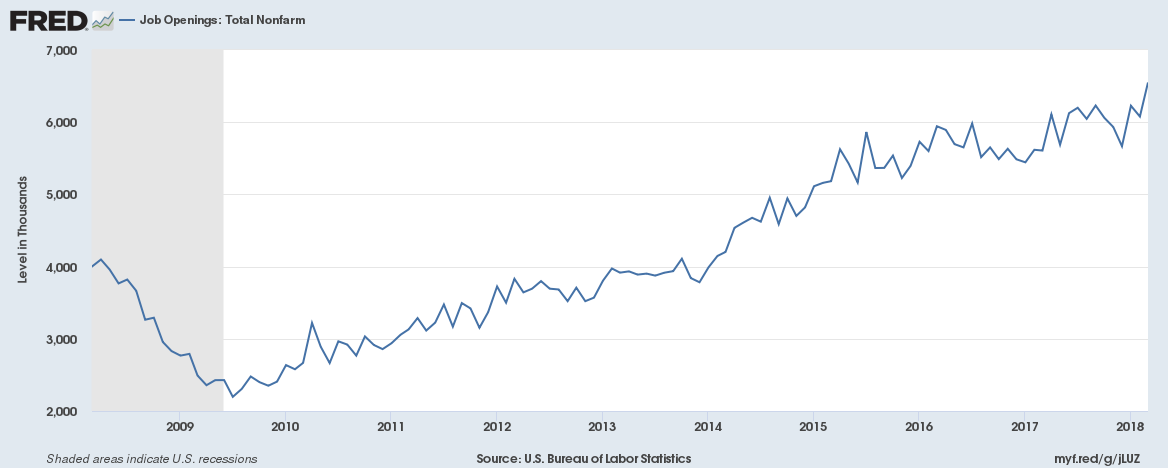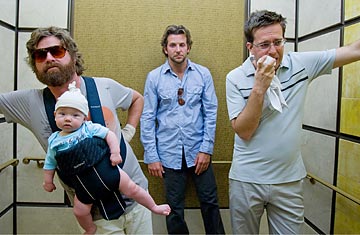If there is one job in the American labor force that presents an incredibly interesting, complex, and important case study on supply and demand, price economics, the impact of automation on work, and the current and future labor force it is the job of commercial truck driver.
A couple of important statistics to keep in mind before we wade into some of the details that make commercial trucking so darn interesting, (at least to labor market and automation geeks like me).
According to the American Trucking Association there are about 3.5 million commercial truck drivers in the US. And 71% of all the freight tonnage in the country is moved by truck. Finally, according to the BLS, truck drivers earn an average of about $24 an hour, and have an average age of about 55 years old.
There are a couple of other factors specific to commercial trucking that tend to make it a difficult job to perform and to recruit for - traditionally new entrants have had to fund their own, expensive training and certification, for new drivers, the hours and time away from home are significant, the job itself is stressful, hard, and tends to foster really unhealthy habits, (poor sleep, fast-food, little exercise), and finally, and perhaps most importantly, commercial truck driving has been increasingly seen as being a job that can and will soon be replaced and disrupted by automation. Estimates of the impact of automation on commercial truck driving vary, but one representative example from Goldman Sachs, estimates that as many as 300K trucking jobs will be lost annually, once self-driving trucks become more widely adopted.
Factor all of this in, the hard lifestyle, the relatively low pay, the looming threat of automation making many of these jobs redundant - oh, I didn't even mention the federal regulations making most of these jobs not available to workers under 21 and the strong market for alternative jobs in construction and energy luring many of the trucking industry's target candidates - and you would probably bet that the US economy is not producing as many new truck drivers as it has in the past.
And you would be right. But the problem of many US companies, (and consumers), is that while we wait for Elon Musk's fleet of autonomous semi-trucks to take over American highways, and in the age of increasing demand for shipments (driven by the strong economy and Amazon Prime), the industry is seeing an increasing shortage of commercial truck drivers.
Here's a chart from the American Trucking Association illustrating the problem facing the trucking industry shown as the estimate of unfilled truck driver jobs:

According to the ATA's estimates, there could be as many as 180,000 trucking jobs unfilled within 10 years. And that kind of a shortfall, should it indeed play out that way, will have a pretty significant ripple effect throughout large swaths of the economy.
Wages and benefits for truckers, which have been increasing steadily, will have to continue to rise. The transportation companies will have to pass these costs to their customers - manufacturers and retailers and commodity producers - who will past them on to their customers, who will pass them on to you and I. And the development timeline for the kinds of autonomous trucks that might stand in for the human truck drivers will have to accelerate.
But in the meantime, at least the next 5 or 10 years, if the current trends hold, the US economy and labor market is going to have to find a way to recruit and retain more truck drivers. And lately, it seems like the transportation and other companies have not really cracked the code on just how to do that.
A tough job, with lots of stress, with relatively poor to average pay, that we keep writing breathless stories about how it will soon be made obsolete by technology, with an aging cohort of workers currently in place, might represent the toughest recruiting challenge in recent memory.
Sure, everyone likes to think 'tech' recruiting is hard, and it probably is. But I would wager a good commercial trucking recruiter would be worth their weight in whatever it is their company needs to get from one side of the country to the other.
Anyone out there doing this kind of recruiting? Would love to hear how it is going on the front lines.
Have a great week!

 Steve
Steve

